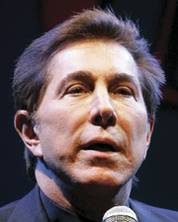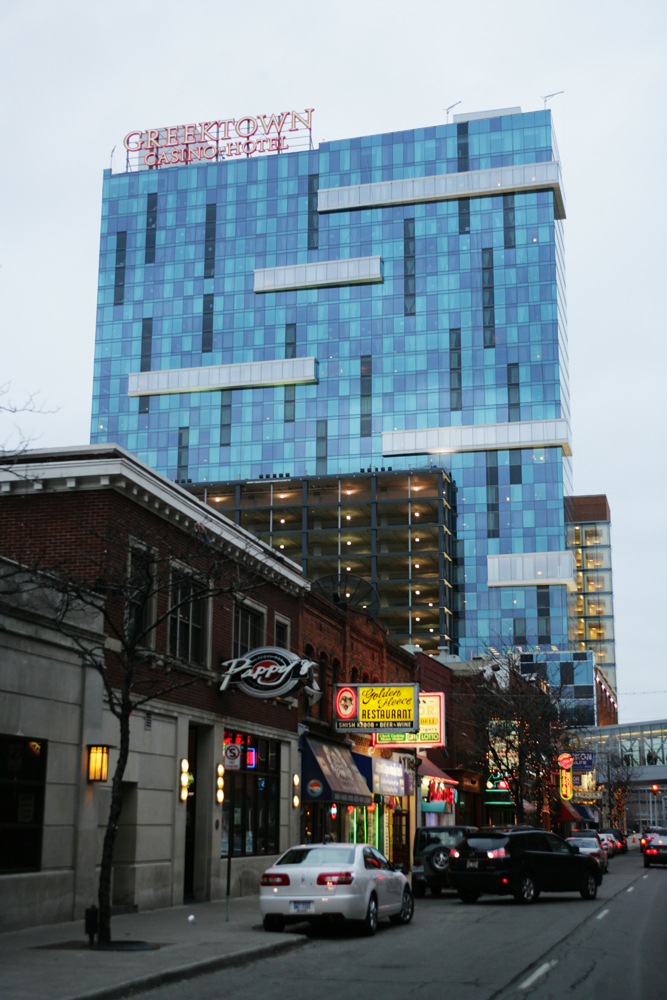 Each with a casino nearly in the bag, both MGM Resorts International and Wynn Resorts want some legislative concessions from Massachusetts. Mohegan Sun is standing pat. MGM and Wynn want their $85 million licensing fee and a number of related statutory expenses refunded, should voters outlaw casinos in a November ballot question (still hypothetical at this point). Bay State casinos are required to report all comps. MGM and Wynn wanted that provision struck but the Massachusetts Gaming Commission wasn’t having it. More equivocal was the non-solution to an absurd requirement that the casinos vet winners for unpaid child support. Aside from the onerous policing requirement, Massachusetts has no database the casinos could consult, so the MGC put the issue on hold.
Each with a casino nearly in the bag, both MGM Resorts International and Wynn Resorts want some legislative concessions from Massachusetts. Mohegan Sun is standing pat. MGM and Wynn want their $85 million licensing fee and a number of related statutory expenses refunded, should voters outlaw casinos in a November ballot question (still hypothetical at this point). Bay State casinos are required to report all comps. MGM and Wynn wanted that provision struck but the Massachusetts Gaming Commission wasn’t having it. More equivocal was the non-solution to an absurd requirement that the casinos vet winners for unpaid child support. Aside from the onerous policing requirement, Massachusetts has no database the casinos could consult, so the MGC put the issue on hold.
The commission was more tractable to putting in a 10-year sunset period on a ban of convicted felons from basic casino jobs. The MGC also fell in with the casino companies when it came to recommending that the minimum threshold on tax-reportage of casino jackpots be raised from $600 to and IRS-friendly $1,200. At least MGM had the grace (unlike Wynn) to say that none of these issues were deal breakers.
Wynn also balked at the requirement for on-site day care, while MGM merely asked for the prerogative of outsourcing it. “We believe the Commission can address this issue through its regulatory authority, and it will not require legislative action,” responded the MGC. Using Kansas for a precedent, the companies also requested a 15-year freeze on their tax rate. The MGC found that an extraordinary request and turned it down. (“It is our view that it is unlikely that the present Legislature can or would bind a future Legislature vis a vis guaranteeing the present tax rate.”)
 MGM balked at a mandatory capex requirement while Wynn requested use of a different formula than 3.5% of net gaming revenues. Unsurprisingly, Wynn “expressed problems” with Massachusetts’ tip-pooling rules, partly because they would keep pit bosses out of the tip pool. Noting the opposition of labor unions, the MGC didn’t think the matter worth forwarding to the Lege. It was more sympathetic to the superfluity of an anal-retentive set of rules governing cashless gaming, which it thought the plaintiffs were unlikely to implement anyway. But a request to have annual casino contributions to a problem-gambling fund at $5 million apiece got the cold shoulder.
MGM balked at a mandatory capex requirement while Wynn requested use of a different formula than 3.5% of net gaming revenues. Unsurprisingly, Wynn “expressed problems” with Massachusetts’ tip-pooling rules, partly because they would keep pit bosses out of the tip pool. Noting the opposition of labor unions, the MGC didn’t think the matter worth forwarding to the Lege. It was more sympathetic to the superfluity of an anal-retentive set of rules governing cashless gaming, which it thought the plaintiffs were unlikely to implement anyway. But a request to have annual casino contributions to a problem-gambling fund at $5 million apiece got the cold shoulder.
* The tragic decline and fall of Dan Lee continues. He’s abruptly left (“left to pursue other business opportunities“) the Palms after eight months on the job. Running an off-Strip casino was already a comedown for Steve Wynn‘s former right-man and the erstwhile CEO of Pinnacle Gaming. The man is talented and it would be nice to see him take root somewhere.
* “I don’t think Greektown is a cursed location,” says a casino restructuring expert, opining on the endlessly adverse fortunes of Greektown Casino. A year under Dan Gilbert‘s ownership has failed to bring a turnaround: “Analysts say Detroit’s gaming market is saturated, with increased competition from new Ohio casinos and aging patrons who are choosing to entertain themselves in other ways — all of which contribute to leaner bottom lines for casino operators.”
 Bankruptcy (again) is not considered a serious danger for Greektown but, since it has the smallest revenue base of any Detroit casino, fiscal declines are magnified. But The Detroit News has learned that a promised, $150 million makeover may be cut back by as much as 85%. Visible aspects, like new slot machines, might still be on. I’d wager that the economies will be made where customers can’t see them, such as the HVAC system. Or perhaps Gilbert will be slower to replace the carpeting than promised.
Bankruptcy (again) is not considered a serious danger for Greektown but, since it has the smallest revenue base of any Detroit casino, fiscal declines are magnified. But The Detroit News has learned that a promised, $150 million makeover may be cut back by as much as 85%. Visible aspects, like new slot machines, might still be on. I’d wager that the economies will be made where customers can’t see them, such as the HVAC system. Or perhaps Gilbert will be slower to replace the carpeting than promised.
“Maybe they can get more percentage of the current market, but it’s certainly not worth spending $150 million to do,” opined casino consultant Jeffrey  Compton. It would certainly free up money for other facets of Gilbert’s Motown version of Tony Hsieh‘s Downtown District in Las Vegas. Gilbert is described as compiling dozens of buildings for a “grand vision for a walkable, vigorous commercial area … a connected live-work-play district.” I dunno about the living and the working but Gilbert’s definitely behind the eight ball on the playing aspect of that plan at the moment.
Compton. It would certainly free up money for other facets of Gilbert’s Motown version of Tony Hsieh‘s Downtown District in Las Vegas. Gilbert is described as compiling dozens of buildings for a “grand vision for a walkable, vigorous commercial area … a connected live-work-play district.” I dunno about the living and the working but Gilbert’s definitely behind the eight ball on the playing aspect of that plan at the moment.
Jake Miklojcik, a former board member, sees a bright side. “Revenues are pretty good. It’s lower than the other two [casinos], but so what? I don’t judge myself on what someone else makes.” He certainly makes more sense when — after three years of decline in the Detroit market — Gilbert mouthpiece Jennifer Kulczycki says “We think the pie can get bigger.” Right now, stabilizing it would be a significant achievement. Growth seems a bit improbable at this point.

